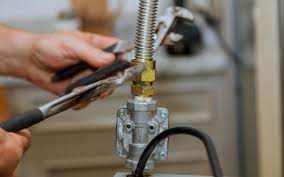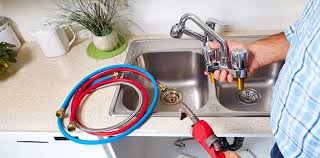The Vital Role of Plumbers in Preventing Water Contamination
Access to clean, safe drinking water is essential for human health and well-being. Plumbers play a pivotal role in ensuring that the water that enters our homes remains uncontaminated and fit for consumption. Their expertise goes beyond fixing leaky faucets and unclogging drains; they are the guardians of our water quality. In this article, we will explore the critical role of plumbers in preventing water contamination Wasden Plumbing Services and preserving the health of communities.
Safe Water Supply Installation:
Plumbers are responsible for installing the water supply lines that bring clean water into our homes. They must ensure that these systems are properly designed and constructed to prevent contamination. This includes selecting the right materials, installing backflow prevention devices, and adhering to local plumbing codes.
Backflow Prevention:
Backflow occurs when contaminated water flows back into the clean water supply due to changes in pressure. Plumbers are trained to install and maintain backflow prevention devices, such as check valves and pressure-reducing valves, to safeguard against this risk. These devices are crucial in preventing pollutants and contaminants from entering the drinking water supply.
Wasden Plumbing Services
(469) 649-6737
Water Filtration and Purification:
Plumbers are knowledgeable about water treatment methods and can help homeowners choose and install water filtration and purification systems. These systems remove impurities, sediments, chemicals, and microorganisms, ensuring that the water coming out of the tap is of the highest quality.
Regular Maintenance and Inspections:
Plumbers play an important role in ongoing maintenance and inspections of plumbing systems. They can identify potential issues, such as corroded pipes or deteriorating fixtures, that could lead to water contamination. Timely repairs and replacements prevent these problems from escalating.
Septic System Care:
In homes not connected to a municipal sewer system, plumbers are responsible for designing, installing, and maintaining septic systems. Properly functioning septic systems are essential for preventing contamination of groundwater and nearby water bodies.
Rapid Response to Emergencies:
In the event of plumbing emergencies, such as burst pipes or sewage backups, plumbers are often the first responders. Their swift and skilled actions can prevent contaminated water from spreading and causing health hazards.
Adherence to Regulations:
Plumbers are well-versed in local plumbing codes and regulations, which are designed to protect water quality. They ensure that all plumbing work is compliant with these standards, reducing the risk of contamination due to substandard installations.
Educating Homeowners:
Plumbers often take on an educational role, informing homeowners about safe water practices and ways to avoid contamination risks. They provide guidance on proper disposal of household chemicals and the importance of routine plumbing maintenance.
Conclusion
Plumbers are the unsung heroes in the battle against water contamination. Their expertise, knowledge, and dedication to preserving the quality of our drinking water supply are invaluable. Whether it’s through preventive measures like backflow prevention or rapid response during plumbing emergencies, plumbers are instrumental in safeguarding the health and well-being of communities. Their role goes far beyond fixing leaks; it extends to ensuring that the water we use for drinking, cooking, and bathing remains pure and uncontaminated.

Leave a Reply